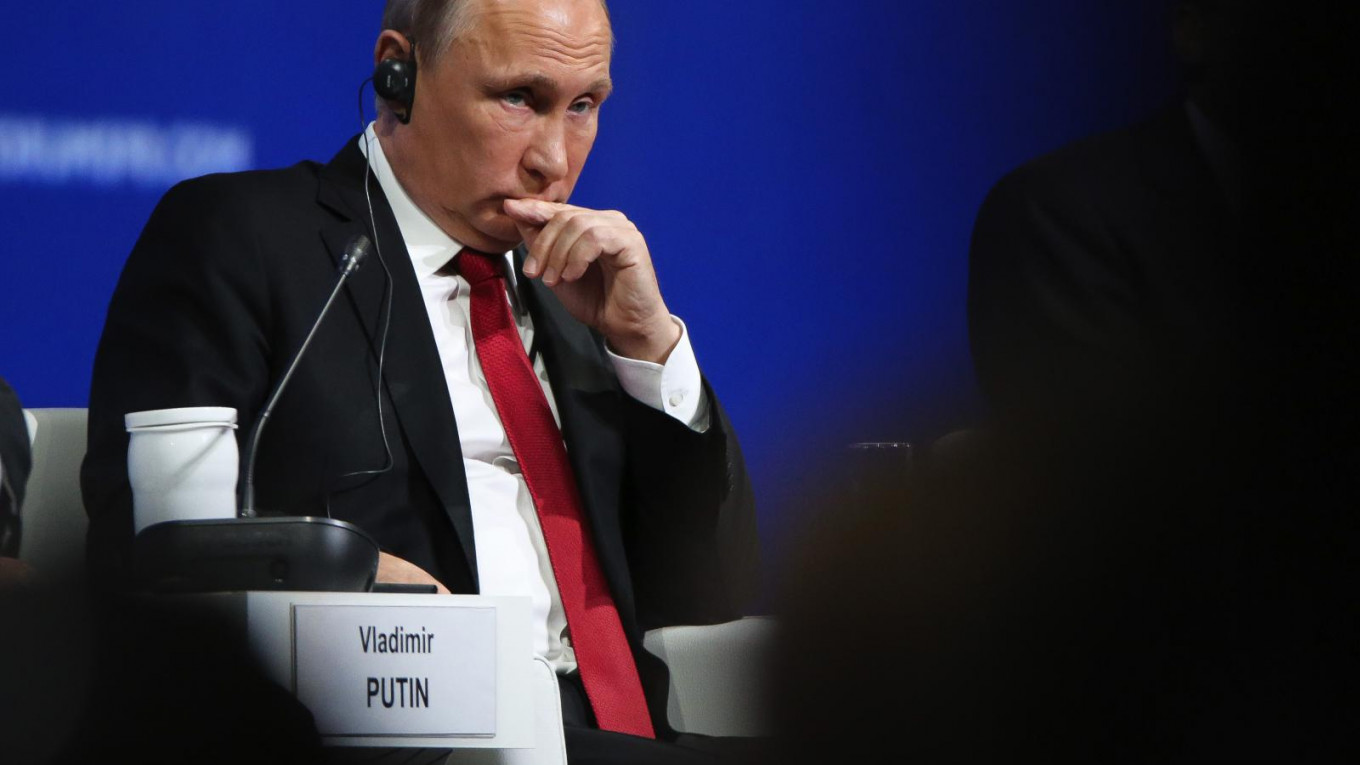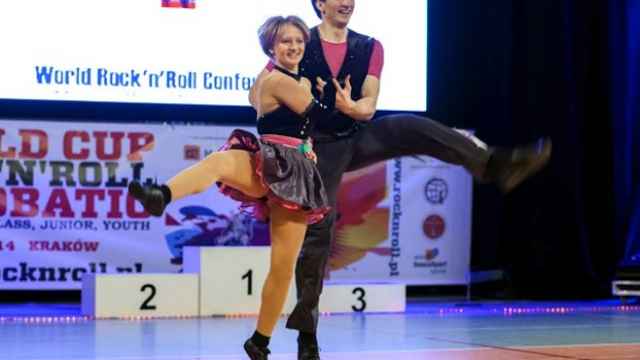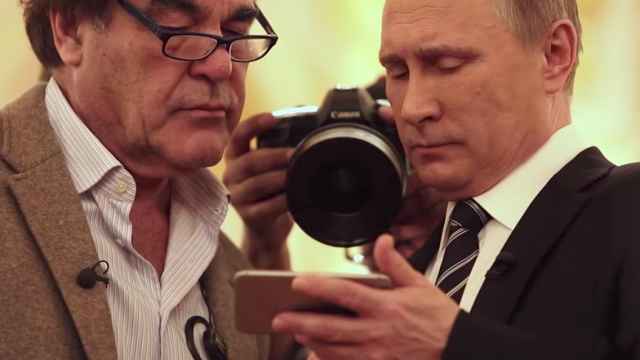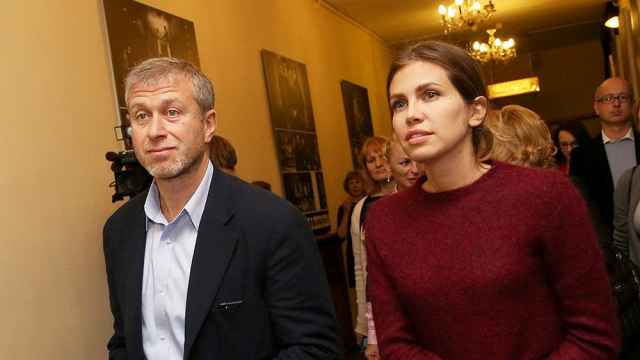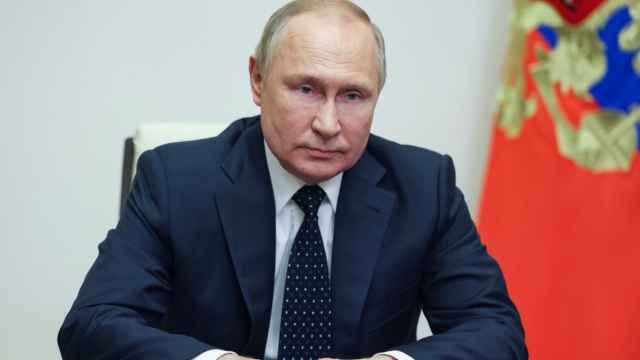(Bloomberg) — During his courtship and marriage, Kirill Shamalov catapulted into the ranks of the super-rich with a little help from some of the closest allies of his father-in-law: Russian President Vladimir Putin.
But now Shamalov’s matrimonial alliance with Putin’s youngest daughter, Katerina Tikhonova, is over, four people familiar with the matter said on condition of anonymity. The son of an old Putin pal is back working as a senior executive for the same petrochemical giant, Sibur, where his rise and fall as a multibillion-dollar owner coincided with his stint in Russia’s First Family.
The reversal of fortune offers a rare glimpse into the secretive ways Putin’s inner circle mixes family, friends and finance. How and why riches are divvied up is the subject of intense scrutiny in the U.S., where investigators are looking for more targets to penalize for Russia’s alleged meddling in the 2016 election.
Shamalov’s brief tenure as a captain of industry started in 2012, around the time he was preparing to wed. Sibur’s main owners, Leonid Mikhelson and Gennady Timchenko, promoted their vice president for business administration to deputy chief executive officer and then awarded him 4.3 percent of the company. In 2014, with a loan from Gazprombank, he acquired another 17 percent from Timchenko for about $2.2 billion. He was 32.
Then Sibur announced last April that Shamalov had sold the shares he bought from Timchenko to Mikhelson. Though the details of the deal and the reasoning behind it were never disclosed, a person familiar with the transaction said Shamalov made “zero” from the sale because he was only allowed to hold those shares in a kind of trust as a Putin family member. That ownership privilege ended when the marriage did, three of the people said.
These are the kinds of relationships that are being increasingly scrutinized by the Treasury Department and other agencies in Washington, where investigators have until Jan. 29 to submit a list of “oligarchs” who may be subject to future penalties. There’s growing concern among Russia’s elite that the U.S. blacklist will be expanded to include progeny, complicating their lives for years.
A person close to Shamalov denied any connection between the Sibur transactions and his marriage. Speaking on condition of anonymity, this person said that the initial 4.3 percent stake Shamalov gained was the result of a management stock-option plan and that the purchase from Timchenko was a joint acquisition with Shamalov’s father. The Shamalovs “barely broke even” when the investment turned out worse than they had hoped, the person said.
Shamalov declined to comment through a representative. Tikhonova’s office didn’t respond immediately to a request for comment, nor did Putin’s spokesman, Dmitry Peskov, Gazprombank or Mikhelson. Sibur’s press service said Shamalov rose through its ranks and was awarded his first stake by shareholders based on performance. A spokesman for Timchenko said his sale to Shamalov was priced at the market rate. Shamalov’s father couldn’t be reached for comment.
Separating from the Putin family hasn’t been a total loss for Shamalov, who’s worth about $800 million, according to the Bloomberg Billionaires Index. That’s due mainly to the 3.9 percent of Sibur he still owns, a stake that is currently valued at about $504 million.
This estimate doesn’t take into account any interest Shamalov might have paid on the Gazprombank loan or any changes to his marital status. Under Russian law, former spouses are entitled to half of all assets accrued during marriage unless a prenuptial agreement was signed.
So assiduously does the Kremlin guard the Putin family’s privacy that even off the record none of the people contacted for this story would say whether Tikhonova has formally divorced or when, exactly, she got married.
Russian media are all but banned from reporting about his daughters, Katerina, 31, and Maria, 32, so their lives are shrouded in mystery. Even their maiden names are different.
Oliver Stone
Putin, who’s seeking to extend his 18-year rule in March elections, rarely talks about his family in public, citing security concerns. He announced his own divorce to a television reporter as he and his then-wife Lyudmila were leaving a ballet inside the Kremlin in 2013.
In 2015, Putin said more about his daughters than ever before, though in characteristically vague terms. Both women graduated from Russian universities and speak multiple languages, he said, adding that they were “doing well” in their chosen careers, keeping “a low profile” and avoiding business and politics. Earlier that year, Tikhonova and Shamalov attended the World Economic Forum in Davos, the RBC newspaper reported.
There’s a YouTube video of Tikhonova dancing in 2013 that’s been viewed more than 1.3 million times. And it’s public knowledge that she helps run a startup incubator at Moscow State University whose sponsors include Gazprombank, Sibur and several companies directly controlled by the state.
Less is known about Maria, reportedly an endocrinology researcher in Moscow who’s married to a Dutchman. The Russian public didn’t learn that the couple had given birth until Putin told Hollywood director Oliver Stone during a series of interviews last year that he’d become a grandfather.
Presidential Account
As for Shamalov, he may still be singled out for U.S. sanctions even if he no longer has direct ties to the Kremlin.
His father, Nikolai, was blacklisted over the Ukraine conflict by the European Union, which called him a part of “an influential group” around Putin. The elder Shamalov is a shareholder in the first Russian entity slapped with U.S. restrictions, Bank Rossiya, a St. Petersburg lender partly owned by Timchenko, who was under sanctions when he sold his Sibur stake to Kirill Shamalov.
But any U.S. penalties imposed on the younger Shamalov, an alum of the same St. Petersburg law school as Putin, would likely only strengthen his standing in Russia. After Rossiya was punished by the Treasury for being the “personal bank” of senior government officials, Putin ordered the Kremlin to open an account in his name and send his presidential salary there.
A Message from The Moscow Times:
Dear readers,
We are facing unprecedented challenges. Russia's Prosecutor General's Office has designated The Moscow Times as an "undesirable" organization, criminalizing our work and putting our staff at risk of prosecution. This follows our earlier unjust labeling as a "foreign agent."
These actions are direct attempts to silence independent journalism in Russia. The authorities claim our work "discredits the decisions of the Russian leadership." We see things differently: we strive to provide accurate, unbiased reporting on Russia.
We, the journalists of The Moscow Times, refuse to be silenced. But to continue our work, we need your help.
Your support, no matter how small, makes a world of difference. If you can, please support us monthly starting from just $2. It's quick to set up, and every contribution makes a significant impact.
By supporting The Moscow Times, you're defending open, independent journalism in the face of repression. Thank you for standing with us.
Remind me later.


